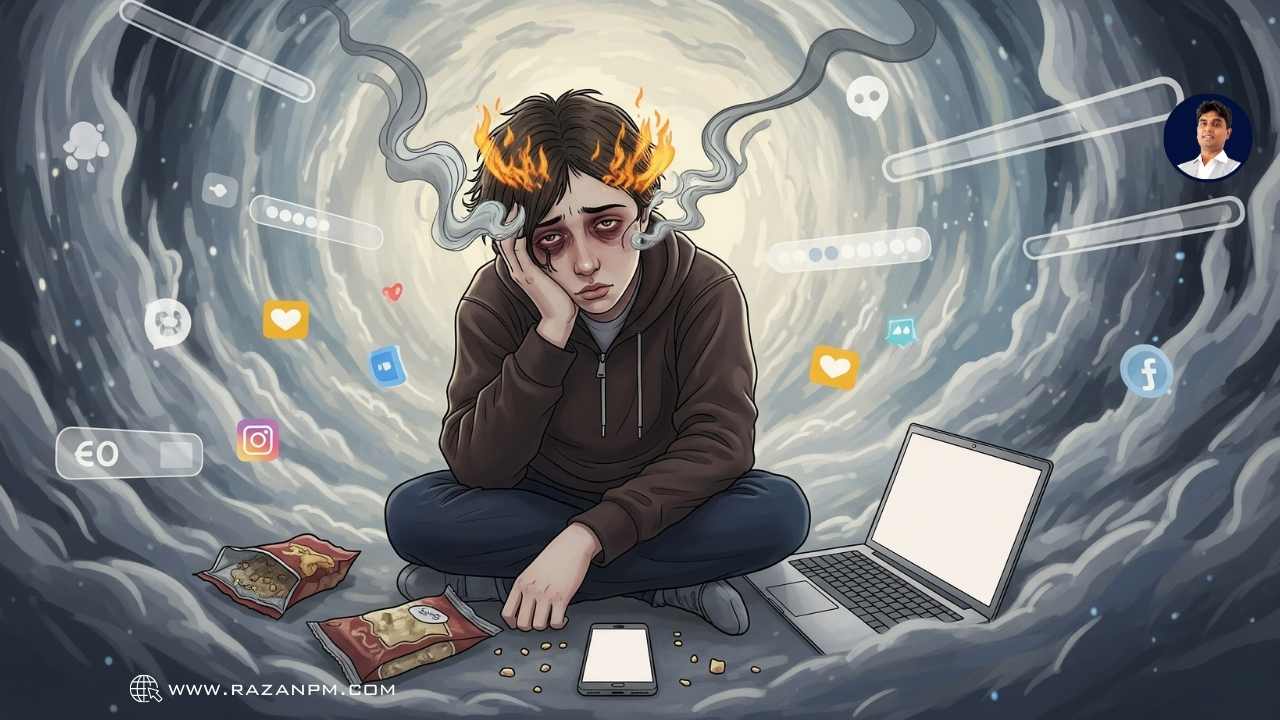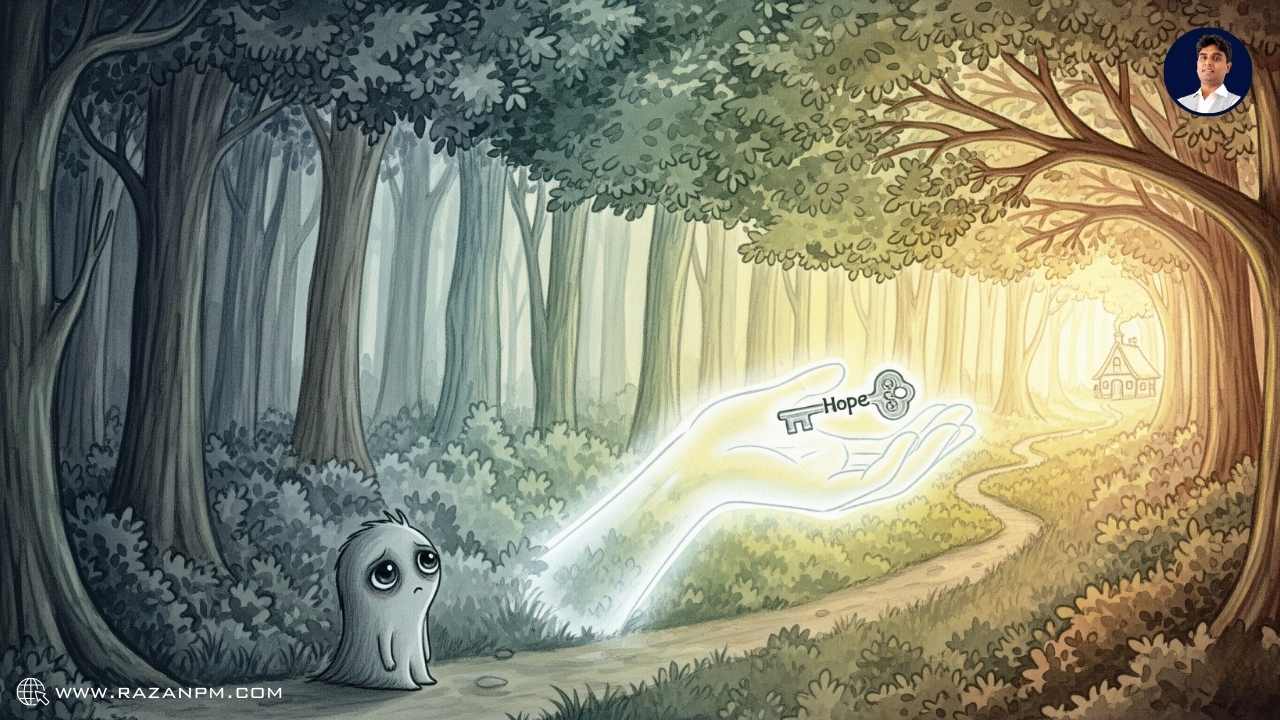Ever had one of those days where the Wi-Fi drops for two minutes and suddenly your brain whispers, “This is the end. I’ll never finish this assignment. My boss will fire me. I’ll probably end up living under a bridge.”
Sounds dramatic, right? But that’s how our minds often play tricks—one tiny inconvenience spirals into catastrophic thoughts. It may seem funny in the moment, but when this cycle repeats every day, it becomes no laughing matter. And here’s the truth: Gen Z is already burned out by 22, and it’s not because they’re “lazy” or “too sensitive.” The real reason is deeper, rarely discussed, and painfully human.
We live in a world where your value is measured by productivity, online presence, and how early you’ve “figured out life.” If you’re 22 and not a millionaire influencer, it feels like you’re already behind. Add the constant buzz of comparison on social media, academic pressure, job insecurity, and the never-ending bad news cycle—your nervous system never gets a break.
This isn’t about weakness. It’s about a generation forced to sprint in a marathon with no water breaks.
Most young adults describe it like this:

It’s like living with your foot stuck on the gas pedal, heart racing even when you’re sitting still. Burnout isn’t always loud; sometimes it’s the quiet numbness, the invisible weight on your chest, the fake smile when someone asks, “How’s it going?”
Here are the most common patterns I see in my clinic:
Many don’t even realize these are warning signs of psychological distress - they just assume “this is adulthood.”
According to DSM-5 (Diagnostic and Statistical Manual of Mental Disorders), chronic stress often overlaps with Adjustment Disorders, Anxiety Disorders, and Major Depressive Disorder. The ICD-11 (International Classification of Diseases) also recognizes burnout as a syndrome, specifically linked to chronic workplace stress that hasn’t been managed.

Here’s the twist: Gen Z is experiencing burnout not only at work but also in education, relationships, and even personal identity. When your brain is wired to be in constant “fight-or-flight,” cortisol levels remain elevated. Over time, this wears down the immune system, emotional regulation, and memory.
It’s like your mind keeps sounding the fire alarm even when there’s no fire.
The research is loud and clear: this isn’t “just in your head.” It’s real, measurable, and urgent.
I once had a 22-year-old client who came in saying, “I think I’m broken. I can’t even get out of bed some days.” She was a brilliant student, always smiling online, posting motivational quotes. But inside, she was drowning.
One day, after weeks of therapy, she admitted: “It’s not just about being tired. It’s that I don’t know who I am without constantly achieving something.”

That hit me. This wasn’t about laziness. This was about a generation that has never been taught to separate self-worth from constant performance.
Burnout at 22 isn’t a joke—it’s a silent crisis. But it doesn’t have to define this generation. When you learn to interrupt thought spirals, reshape your inner dialogue, and create safety in small moments, life no longer feels like an endless race.
Remember: You are not behind. You are not broken. You are human.
👉 Begin Your Journey with a 1 on 1 Consultation
👉 Begin Your Journey with a 1 on 1 Consultation
